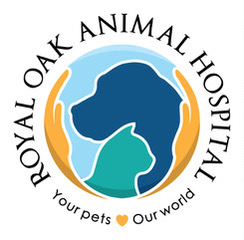Library
-
Oxytetracycline/polymyxin B ophthalmic (brand name Terramycin®) is a combination antimicrobial medication used to treat certain types of bacteria (gram-positive and gram-negative). It is used to treat eye infections in cats and dogs. It is used “off label” or “extra-label” to treat eye infections in avian species, hedgehogs, and rabbits. Oxytetracycline/polymyxin B comes in ointment form.
-
Oxytocin is a hormonal agent used to induce or enhance uterine contractions at the time of birth in cats, dogs, rabbits, rodents, and other mammals. Oxytocin is also used in mammals to help start milk production, control uterine bleeding, and help shrink the uterus to normal size after birth. It has been used in birds and reptiles to help resolve egg binding.
-
Pacheco's disease is caused by an avian herpesvirus. It is often a fatal disease, but treatment with an anti-herpes medication may be life-saving if used at first presentation. This disease is seen less often in today's pet bird population since most parrots are domestically raised and not imported.
-
Pancrelipase is given by mouth and is used on and off label to treat exocrine pancreatic enzyme deficiency in dogs, cats, and birds. It is also used to treat fur balls in rabbits. Give as directed by your veterinarian. Common side effects at higher doses include diarrhea, cramping, gas, or vomiting. Do not use in pets that are allergic to pork. If a negative reaction occurs, please call your veterinary office.
-
Parasites are not commonly diagnosed in pet birds; however, when present, they can cause generalized debilitation. With external parasites, your veterinarian can often make a diagnosis based on a physical examination and a microscopic analysis of skin lesions. Intestinal parasites are usually discovered when the feces are examined microscopically. Blood parasites are typically found during a routine blood count. All anti-parasite treatment should be under the advice of your veterinarian.
-
Paroxetine is given by mouth and is used off label to treat certain behavior disorders such as aggression, anxiety, and urine-marking. Give as directed by your veterinarian. Common side effects include sleepiness and decreased appetite. Do not use in pets that are allergic to it or other SSRIs, or pets currently taking MAOIs. If a negative reaction occurs, please call your veterinary office.
-
Perches should vary in size so birds can firmly and comfortably grip or grasp them. Birds can get sore feet if the perch diameter is the same all the time. Perches not only serve as a place for birds to stand on but also as objects on which to chew. This article discusses the various types of perches, recommendations, and best practices for cleaning and maintenance.
-
The domestic pigeon includes over 300 breeds, all descending from the rock dove. They originated in Eurasia, but are now found all over the world. They are generally hardy birds that are easy to tame and care for. As with any pet, pigeons and doves need regular, routine, veterinary health checkups.
-
Many birds naturally eat plants as part of their diet. Birds will chew on and possibly consume plants in the course of play and curiosity. Some plants will just make a bird sick while others can kill them. This handout catalogues many of the indoor and outdoor plants that are considered safe for birds.
-
Many birds naturally eat plants as part of their diet. Some birds will chew on and possibly consume plants out of curiosity or during play. Many toxic plants will just make a bird sick if they ingest them, but some can kill them. Fortunately, rather than ingesting plants, most birds shred and play with plants with which they come in contact. This handout catalogues many of the indoor and outdoor plants that are considered to be potentially toxic to birds.


